Autumn 2024 Course Offerings
The most up-to-date list of course offerings is always available via View Schedule of Classes on BuckeyeLink.
Note on New GE Program
The university will roll out a new General Education program for new students beginning in Autumn 2022. These GE requirements will be called "General Education - New" or GEN.
Requirements for current students will not change, and they will continue to complete the same GE program — now called the "General Education – Legacy" or GEL.
Italian 2055 - Mafia Movies

Michela Bertossa, ONLINE, WF 2:20-3:40 pm, 3 credit hours
*This class is fully online. Distance synchronous with asynchronous components.
GEL Visual and Performing Arts, GEN Foundation: Literary, Visual & Performing Arts. Taught in English.
The Mafia in Italy is referred to as an octopus as the organization pervades almost every facet of Italian cultural life. Tony Soprano, Don Vito and Michael Corleone, Lucky Luciano, Robert De Niro, Martin Scorsese, or Christopher Moltisanti are some of the figures that contribute to the myth of the Italian and Italian-American Mafias. Others, such as Jonas Carpignano, Peppino Impastato, and Roberto Saviano explore a new cinematic wave about organized crime. In this course we watch Italian and American mafia movie and television hits, and explore the myth of the Mafia that is so widespread in American popular culture, and trace its histories and receptions as it passes across time and through a variety of cinematic styles. We will question whether there exists a unique American or Italian cinema and television treating Mafias, in its polymorphic nature, and explore how filmmakers from the two countries approach the subject in dissimilar fashions, especially in terms of stereotyping, gender, politics, and representations of violence and alluring criminals.
This course can count as a course taught in English toward the Italian minor and the Italian or Italian Studies majors.
Italian 2056 - Love on the Italian Screen
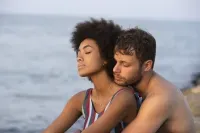
Professor Jonathan Mullins, MW 2:20-3:40 pm, Jennings Hall 040, 3 credit hours
GEL Visual and Performing Arts, GEL Diversity: Global Studies; GEN Foundation: Literary, Visual & Performing Arts. Taught in English.
Love has long been a theme that has dominated Italian film and television. But how have such representations of love been conditioned by questions of identity including race, gender, sexuality and ethnicity? This course explores this question through representations of eros, romance and friendship in a variety of moving images. We will engage with silent film that looks at what it means to be a Southern Italian woman (Assunta Spina) to more recent film on cross-cultural friendship between migrants in Shun Li and the Poet, ands interracial romance in Summertime. We study how the theme of love condenses a variety of concerns and anxieties about racial, gender, sexual and ethnic identity, with attention to how these forms of identity emerge in the context of 20th and 21st century Italy. Students will reflect on what it means to study such forms of identity in the Italian context, and also on their own experiences and biases that they bring to the study of race, ethnicity, gender and sexuality as students in Ohio.
Never study cinema before? No worries. A crucial component of the course will be dedicated to studying the aesthetics of narrative cinema, and also understanding it as a complex industrial product with its own systems of production and reception.
French 2801 - French Cinema
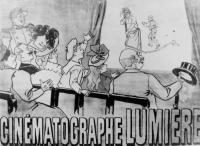
TBD, TR 9:35-10:55 am, Mendenhall Lab 191, 3 credit hours
GEL Visual and Performing Arts, GEN Foundation: Literary, Visual & Performing Arts. Taught in English.
Explore French cinema from its pioneering beginnings to the present day. Get to know the major eras in the history of French Cinema, such as the silent era, Poetic Realism, the Tradition of Quality, the New Wave, and modern French cinema, all within the context of French culture. Learn to discuss film as a text and talk about technical aspects like framing, mise-en-scène, and shot composition. The course is taught in English and all films are subtitled. No background in French or film studies is necessary.
French 2803.01 - Paris

Dr. Ryan Joyce, T 4:10-5:10 pm, ONLINE
GEL Cultures and Ideas, GEN Theme: Lived Environments.
What was the city of Paris like in 1789, and how have its geography and society evolved over the last two centuries? By reading and viewing representations of Paris in a variety of media (maps, paintings, photographs, films, and literary and historical texts), we will explore both how the city’s landscape has shaped its society and how its increasingly diverse society has in turn shaped and transformed its landscape to suit Parisians’ evolving needs, desires, and caprices. Each two-week unit will treat representations of a specific event or era in Parisian history that had a significant impact on the city’s organization, architecture, and/or demography, and together the units will give us a general understanding of Parisian history over the last 230 years and of the multiple ways in which that history has been represented, and thus manipulated for various purposes.
Italian 3001 - Green Italy
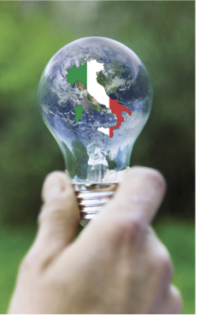
Dr. Giuliano Migliori, WF 12:45-2:05 pm, Scott Lab E040, 3 credit hours
GEN Theme: Sustainability
This course traces the history of Italian environment, landscape narratives, and energy policies with a focus on the last two centuries, by analyzing the effect of human-driven land consumption, pollution, and economic transformations on natural spaces. Students will explore Italy’s vulnerable beauty (its geography, its unstable and seismic terrain, the industrial revolution, conflicts over nuclear energy, and circular economy), the crisis of steel in the Apulia region, the illegal toxic dumping near Naples, and the overflowing tourism and rising sea levels in fragile spaces such as Venice. In turn, we will also examine resilient social practices of preservation (the tangible and intangible value of UNESCO cultural and social sites), slow and ethical tourism, and attempts to rehabilitate ecological and social spaces with a focus on justice, health, and cultural liberation. We will read and view a selection of works, literary and scientific texts, documentaries, journalistic accounts and as well as official EU government documents and NGO manifestos (Symbola association, Slow Food movements, ENEA industries, and the case of Placeology practices on restorative urban spheres) that weave together economic, social, cultural, and political aspects of sustainable development, and the course will guide students to reframe and dig deeper into contemporary environmental Italian humanities and sustainable practices.
Taught in English. GEN Sustainability. Counts towards the Major or Minor in Italian.
Italian 3051 - Italian Romances
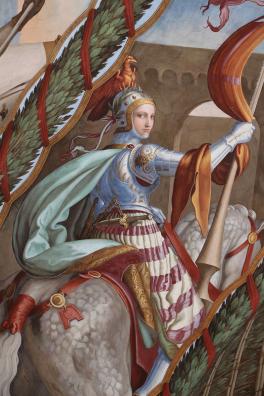
Professor Jonathan Combs-Schilling, TR 9:35am-10:55am, Hagerty Hall 071 3 credit hours
GEL Literature, GEL Diversity: Global Studies. GEN Foundation: Literary, Visual, & Performing Arts. Taught in English.
In this course, students will become familiar with the medieval foundations of the romance genre; analyze the figure of the knight errant who wanders far from the center of his or her culture; and investigate the abiding influence of romance storytelling on how stories are told and communities are represented in contemporary literature and film.
This course can count as a course taught in English toward the Italian minor and the Italian or Italian Studies majors.
FRIT 3054- The 21st-Century Skill: Intercultural Competence for Global Citizenship
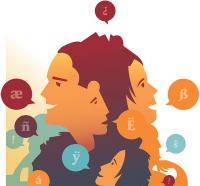
29934: Professor April Weintritt, MW 2:20-3:40 pm, Jennings Hall 160, 3 credit hours
30584: Sandhya Shanker, TR 2:20pm-3:40pm, Hopkins Hall 246, 3 credit hours
34748: Carrie Ann Thomas, MW 2:20pm-3:40pm, Denney Hall 250, 3 credit hours
34749: Professor Adela Lechintan-Siefer, TR 11:10am-12:30pm, Derby Hall 80, 3 credit hours
34750: Dr. Kelly Campbell, TR 12:45pm-2:05pm, Denney Hall 250, 3 credit hours
GEL Diversity: Global Studies, GEN Theme: Citizenship for a Diverse & Just World.
Intercultural competence is an essential characteristic for becoming globally-minded and functioning in multiple, diverse, local and non-local networks, and for that reason it has been identified as being among the top ten skills necessary for succeeding in the 21st century. Achieving the skills, knowledge, behaviors and attitudes of interculturally competent global citizens is a lifetime endeavor, so in this course you will acquire the foundations for the journey. This course is divided into four modules: 1) Foundational concepts; 2) Intercultural interactions; 3) Intercultural (communicative) competence; 4) Intercultural competence and citizenship. We will begin by exploring the complexities of the term ‘culture’ and how culture shapes our understanding of ourselves and others, our identity, and our worldview. You will explore your own cultural background by doing a cultural autobiography. You will delve into how implicit biases and stereotypes impact your interactions with others and learn to engage in inclusive practices that make you a better team player by participating in an investigative intercultural team project. In addition, you will learn the unique ways in which learning a world language and experiencing other cultures contribute to the development of intercultural competence.
This course meets the goals and expected learning outcomes of the GE theme category: Citizenship for a just and diverse world. It also counts as a course taught in English for the Italian/Italian studies majors and minor, and the French/French and Francophone studies majors and minor.
FRIT 3061 - Mediterranean Food Culture
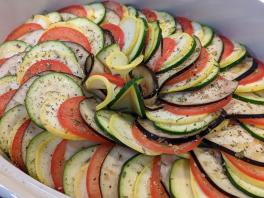
Dr. Mark Anthony Arceno, TR 2:20-3:40 pm, University Hall 014, 3 credit hours
GEL Cultures and Ideas, GEL Diversity: Global Studies, GEN Theme: Lived Environments & Theme: Sustainability. Taught in English.
What do bacalhau, falafel, moussaka, paella, ratatouille, risotto, spanakopita, tabbaouleh, and tagines have in common (other than perhaps making your mouth water)? They are among a host of diverse dishes that represent the rich, complex, and migratory tapestry of “Mediterranean food.” Considering food as more than just a biological necessity, this course approaches food as a way of talking about culture and identity in an ever-changing world full of human and environmental interactions. How does the food we and others eat help define the spaces we inhabit and call home? What do changing landscapes mean for the availability of ingredients we might otherwise take for granted? In what ways are these relationships represented in film, literature, music, and social media? With specific regard to local, regional, and national traditions of countries that surround the Mediterranean Sea, we will spend our semester together learning about the “taste of place” and why it is so difficult to define.
This course can count as a course taught in English towards FRIT minors and majors. Please consult specific degree requirements for more information.
Please refer to the Schedule of Classes via BuckeyeLink to view days and times of these offerings.
French Introductory Language
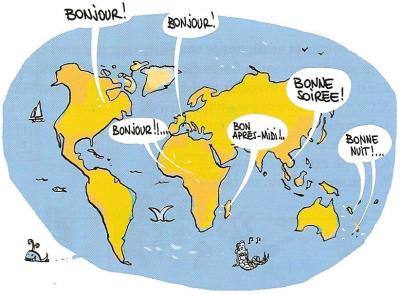
French 1101.01, 1102.01, 1103.01 - Beginning French I, II, and III Classroom (4 credit hours)
French 1101.21, 1102.21, 1103.21 - Beginning French I, II, and III Distance Learning (4 credit hours) 1101.21 also offered as an Asynchronous Distance Learning option (4 credit hours)
French 1101.61, 1102.61, 1103.61 - Beginning French I, II, and III Individualized Distance Learning (2-4 credit hours) *.61 Individualized Instruction sections are open only to students who need variable credit options to finish the language requirement. All other students interested in asynchronous should enroll in the corresponding .21 section.
French 1155.01 - Beginning French Review Classroom (4 credit hours)
French 1155.21 - Beginning French Review Distance Learning (4 credit hours)
Italian Introductory Language
Italian 1101.03, 1102.03, 1103.03 - Beginning Italian I, II, and III Blended (4 credit hours)
Italian 1101.71, 1102.71, 1103.71 - Beginning Italian II and III Online (4 credit hours)
Italian 5101 - Intensive Italian
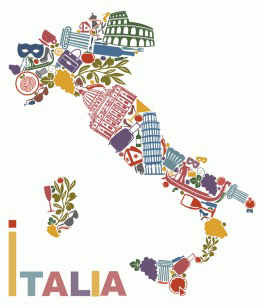
GR course #: 37302
UG course #: 37305
Professor April Weintritt, MWF 12:45pm-2:05pm, Enarson Classroom Building 211
Intensive Italian covers the same material as Italian 1101, 1102, and 1103 in one semester! The course is fast-paced and ideal for students who are looking for a small, supportive, and inclusive classroom community and who find learning foreign languages interesting! Previous foreign language study ideal, but not required. Not open to native speakers of Italian.
GEL Foreign Language; GEN World Language
French 2101.01 – Introduction to French & Francophone Studies
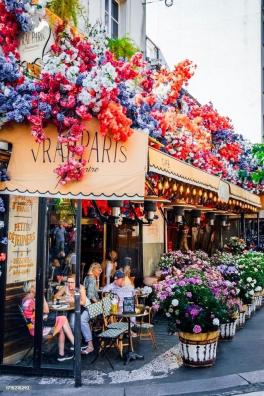
Professor Jennifer Willging, TR 11:10-12:30 pm, Hagerty Hall 351, 3 credit hours
Welcome to the threshold to the French minor and major! In French 2101, you will have the opportunity to practice and improve your reading, writing, listening, and speaking skills in French, as well as to continue learning about French & Francophone literatures and cultures through reading, viewing, and interpreting authentic literary and visual texts from around the Francophone world.
This lively course serves as a bridge between language courses (1101-1103) and upper-level courses in French. By emphasizing all four skills (listening, speaking, reading, and writing), it will improve your proficiency and prepare you for further coursework in language, literature, culture, and film and for a minor or major in French or French and Francophone Studies. In it you will interpret and analyse both in oral discussion and in writing a variety of texts (short stories, films, songs, posters, etc.) from France and the Francophone world. Some grammar points will be reviewed, although grammar will be covered more intensely in FR 3101, which may be taken either at the same time as or after FR2101.
French 2101.61 - Introduction to French & Francophone Studies I.I.
29227: Dr. Beth Bishop, Online Individualized Instruction (I.I.), 1-3 credit hours
Techniques for reading and interpreting different types of texts from the French-speaking world: stories, poetry, plays, films, music, and ads while building vocabulary, comprehension, speaking and writing skills.
Prereq: 1103.01, 1103.21, or 4 cr hrs of 1103.51 or 1103.61, or permission of instructor. Not open to students with credit for 2101.01, 2101.01H, or 2101.51. Repeatable to a maximum of 3 cr hrs or 3 completions. This course is available for EM credit.
French 3101 - French Grammar Review
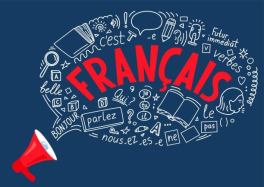
Dr. Darrell Estes, MWF 9:10am-10:05am, Hagerty Hall 251, 3 credit hours
“Bootcamp French” in the words of a former student, this course improves your ability to speak and write. We will review grammar “rules”, focus on how context creates meaning, and strengthen vocabulary by studying false cognates . Through online discussions, personal narratives and opinion pieces, students will practice speaking and writing more nuanced, accurate French.
French 3103 - French Conversation
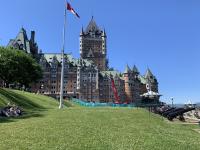
Dr. Darrell Estes, 7W2, WF 2:20-3:40 pm, Hagerty Hall 159, 3 credit hours
French 3101 is a course designed to improve students’ conversational French abilities on a wide variety of topics. Using various media (e.g., podcasts, music, video, print, and digital media), students will converse one-on-one and in groups on a variety of topics important in French and Francophone cultures (current events, heritage/history, the arts, broadcast and cinematic media, literature, etc.).
The purpose of this course is for students to develop their conversational abilities through active listening and reading using the above-mentioned media, as well as speaking. Through a combination of listening, reading, and speaking, conversational ability will honed and fluency developed. Likewise, the purpose of this course is not to develop the “correct” accent. The Francophone world is composed of a wide variety of accents, all of which are valid, and all of which we will experience throughout this course.
This course is not open to those students who are native speakers or who have already developed near-native conversational abilities in French.
French 3402 - Francophone Literature & Culture
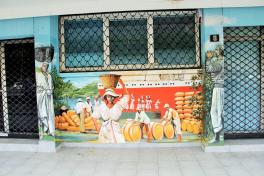
Dr. Kate Schlosser, TR 12:45-2:05 pm, Hagerty Hall 159, 3 credit hours (taught in French)
Exploration of what culture is; understanding nuances, and the art of cultural analysis. Delve into cultural Analysis and its terminology, and varied social movements within Francophone cultures. Uncover the social, cultural, and historical landscapes of the French Caribbean, West Africa, and beyond, emphasizing race, class, gender, and political ideologies within the French-speaking world. Engage in the interpretation and analysis of cultural texts, institutions, and the diverse facets of national, mass, and popular cultures within the Francophone context.
French 3502 - French for International Studies

Professor Adela Lechitan-Siefer, WF 11:10am-12:30pm, Hagerty Hall 359, 3 credit hours (taught in French)
Globalization, diverse identities, and power relations are just a few concepts used to describe and understand the multilateral dynamics that have shaped the French-speaking world. Deepening your knowledge about this world and acquiring the cultural and linguistic skills needed to successfully navigate an international career path will be at the center of this course. By surveying themes such as the relations between French-speaking countries, international organizations, and current events in France and the Francophone regions, students will gain cultural knowledge and develop intercultural competence and vocabulary skills that they can utilize in fields such as international studies, diplomacy, human rights, journalism, and other professional contexts. In this course, taught in French, students will research, examine, and discuss cultural topics and current (social, cultural, political, environmental) issues in the world.
French 4100 - Advanced French Grammar through Current Events
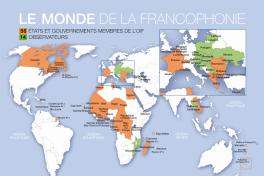
Dr. Gloria Torrini-Roblin, WF 12:45-2:05 pm, Hagerty Hall 259, 3 credit hours
Why study advanced French grammar if you are interested in international affairs? Human rights? Food? Finance? Migrants? Medicine? To follow these issues in the francophone media, you need to master the written language by becoming a more educated, informed reader, as well as a more skilled, articulate writer of French.
This course replaces FR 5101 and is required for the French major for those have not yet taken 5101. Students who have already taken 5101 cannot register for this course.
French 4401 – Topics in French & Francophone Studies - Crime Fiction in French / La Fiction policière
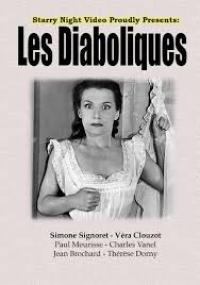
Professor Jennifer Willging, TR 2:20pm-3:40pm, Mendenhall Lab 174, 3 credit hours
If you grew up loving detective fiction, you’ll enjoy discovering a variety of enigmas in the French tradition, from wartime noir, to experiments by avant-guard non-specialists, to contemporary best-sellers. We'll analyse some of the attempts made to define la fiction policière and its various sub-genres and ponder the ways in which some of its best texts simultaneously conform to and defy the "rules" of the genre. We’ll also view some cinematic and graphic-novel adaptions of romans policiers, considering how the adaptation of these texts to visual media might enrich the genre. So come explore a fictional underworld while at the same time improving your reading, writing, listening, and speaking skills in French!
French 5701 - Qu’est-ce que le genre—à l’écrit et à l’écran?
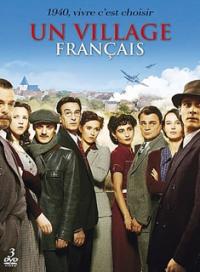
Undergraduate: 36461 / Graduate: 34741
Professor Maggie Flinn, WF 9:35am-10:55am, Derby Hall 030, 3 credit hours
In this class, we will consider the question “what is genre”? To do so, we will consider examples drawn from genres popular in France/the French speaking world in the 20th and 21st centuries (e.g. policier, historical drama, comedy, science fiction, etc.) across different screen and print media: film, television, bande dessinée, and literature. By studying examples of each genre in more than one medium, we will be able to consider how these different media are differently able to take advantage of generic conventions, as well as how conventions can hold steady across different artistic forms. Students will be introduced to and practice the detailed analysis of both screen and printed text, with special attention where applicable to the relationship between word and image.
Language of instruction is French. No previous experience in film/tv or comics studies required. This course counts towards both the French major and minor as a “course at the 4000 level or above.”
French 5701 - Qu’est-ce que le genre—à l’écrit et à l’écran?

Undergraduate: 36461 / Graduate: 34741
Professor Maggie Flinn, WF 9:35am-10:55am, Derby Hall 030, 3 credit hours
In this class, we will consider the question “what is genre”? To do so, we will consider examples drawn from genres popular in France/the French speaking world in the 20th and 21st centuries (e.g. policier, historical drama, comedy, science fiction, etc.) across different screen and print media: film, television, bande dessinée, and literature. By studying examples of each genre in more than one medium, we will be able to consider how these different media are differently able to take advantage of generic conventions, as well as how conventions can hold steady across different artistic forms. Students will be introduced to and practice the detailed analysis of both screen and printed text, with special attention where applicable to the relationship between word and image.
Language of instruction is French. No previous experience in film/tv or comics studies required. This course counts towards both the French major and minor as a “course at the 4000 level or above.”
FRIT 8602 - Trade in Tales Across French, Provençal, and Italian Boundaries
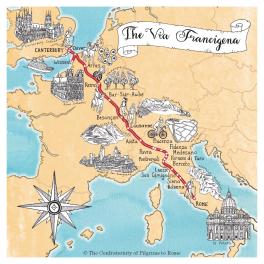
Professor Sarah-Grace Heller, W 5:30pm-8:15pm, Hagerty Hall 206
The Via Francigena was the great road that passed from Rome through Provence and the Alps to Champagne, the wealthy cloth towns of Picardy and Flanders, and all the way to Canterbury. It was a pilgrimage route as well as a trade route. Italian merchants brought silks and spices to sell at the Champagne fairs and became the bankers of Western Europe. In the other direction, northern woolens traveled south to the ports of the Mediterranean. Stories were exchanged along these routes as well, by polyglot business people, religious travelers, nobles negotiating war and peace, and poets seeking patronage from court to court. In this course we will study the filiation of Occitan vidas and novas (Dante’s “lingua d’oc”), French fabliaux, contes and nouvelles in langue d’oil, and Italian novelle and conti in the “lingua di si” through readings in parallel translations. Topics will include hybridization of genres between romance languages and cultures, intertextuality and réécriture, the place of material culture in these traditions, the idea of the “originality” of the writer, narrative structure and rhetoric, and other ways in which the pleasure of tale-telling caused these stories to survive in many iterations over centuries.
Italian 2102 - Contemporary Italian Society
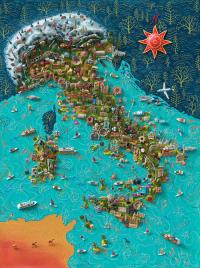
Professor Qian Liu, TR 9:35am-10:55am, Hagerty Hall 251, 3 credit hours
How did we arrive at the contemporary forms of Italian culture that one can find in Rome today? As the adage goes, "All roads lead to Rome," and indeed diverse trajectories have brought
immigrants from within Italy and from abroad to call the capital city home. Deep and lasting transformations of Italian culture and society are more and more apparent; the influence of Italy’s institutions is waning, as a result of shifting and broadening traditions, values, and perspectives of what was once dominant and normative Italian cultural beliefs on religion, gender, family, and more. All these transformations are at play in the principal text of this course: the best-selling 2006 novel Clash of Civilizations for an Elevator in Piazza Vittorio by Amara Lakhous, an acclaimed Algerian-Italian author. Particularly when reading the principal novel but also in additional readings and videos, we will delve into the convergence of 20th and 21st century Italian cultural history and language expression through analysis of a variety of
contemporary speech registrars, dialects, European cultural reference points, and immigration and refugee crises at the turn of the century.
In this course we explore modern and contemporary Italian society as we focus on the four language skills: listening, reading, writing, and speaking. Since you are transitioning from the elementary to the intermediate level, more emphasis will be placed on developing your reading skills, so you will be exposed to a lot of authentic Italian texts of different lengths and in different genres. However, your listening, writing, and speaking skills will not be ignored! Grammar will be reviewed and tested throughout the course.
The targeted structures are a review of nouns and adjectives; regular and irregular present indicative verbs; the passato prossimo, the imperfect, the past perfect (trapassato prossimo) and the remote past (passato remoto); the subjunctive mood, hypothetical constructions, and relative and interrogative pronouns.
Italian 3103 - Stylistics

Samanta Buffa, WF 11:10am-12:30pm, Hopkins Hall 246, 3 credit hours
This is a writing intensive course in which students develop the skills necessary for writing efficiently and effectively in Italian in a variety of styles using the support of technology such as an online dictionary, a grammar and spell checker, and automatic translation tools. The theory is that students have these tools at their disposal, so they should learn how to use them properly in order to improve their writing. At the same time, however, students will learn about and reflect on the consequences of using technology and AI to enhance their writing – the benefits as well as the obstacles.
Italian 5330 - Topics in Italian Studies - Italian Renaissance
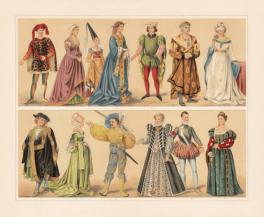
Undergraduate: 36462 / Graduate: 34744
Professor Jonathan Combs-Schilling, TR 3:55pm-5:15pm, Hagerty Hall 206, 3 credit hours
Exploration of diverse dimensions of Italian society, culture, language. Topics vary each semester. Taught in Italian.
Italian 5330 - Topics in Italian Studies - Italian Renaissance
Undergraduate: 36462 / Graduate: 34744

Professor Jonathan Combs-Schilling, TR 3:55pm-5:15pm, Hagerty Hall 206, 3 credit hours
Exploration of diverse dimensions of Italian society, culture, language. Topics vary each semester. Taught in Italian.
FRIT 8602 - Trade in Tales Across French, Provençal, and Italian Boundaries

Professor Sarah-Grace Heller, W 5:30pm-8:15pm, Hagerty Hall 206,
The Via Francigena was the great road that passed from Rome through Provence and the Alps to Champagne, the wealthy cloth towns of Picardy and Flanders, and all the way to Canterbury. It was a pilgrimage route as well as a trade route. Italian merchants brought silks and spices to sell at the Champagne fairs and became the bankers of Western Europe. In the other direction, northern woolens traveled south to the ports of the Mediterranean. Stories were exchanged along these routes as well, by polyglot business people, religious travelers, nobles negotiating war and peace, and poets seeking patronage from court to court. In this course we will study the filiation of Occitan vidas and novas (Dante’s “lingua d’oc”), French fabliaux, contes and nouvelles in langue d’oil, and Italian novelle and conti in the “lingua di si” through readings in parallel translations. Topics will include hybridization of genres between romance languages and cultures, intertextuality and réécriture, the place of material culture in these traditions, the idea of the “originality” of the writer, narrative structure and rhetoric, and other ways in which the pleasure of tale-telling caused these stories to survive in many iterations over centuries.
